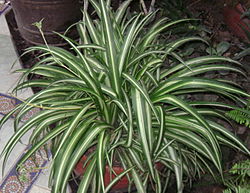Typical yield
9.0 t/ha
Varieties
4
Pest/Disease
7
Seasons
4
Profile
- Growth habit
- annual
- Lifecycle (days)
- 30–90
- Primary uses
- Leafy vegetable (fresh/cooked); medicinal/culinary herb
- Pollination
- insect
- Origin / distribution
- Africa & Asia tropics/subtropics; common in smallholder systems
Environment
Climate
Temp optimal
20–30 °C
Rain optimal
500–900 mm/yr
Altitude
0–2200 m
Soil
pH optimal
6–7
Soil type
Well-drained loam/sandy loam; fertile and friable
Farmer Guide
Row spacing
40 cm
Plant spacing
30 cm
Depth
1 cm
Seed rate
3 kg/ha
Nursery days
25
Planting: Direct-seed or raise seedlings; thin early for uniform stands. Sow with onset of rains or irrigate lightly.
Transplanting: Transplant at 3–4 weeks with 3–4 true leaves; avoid root disturbance.
Irrigation: Keep evenly moist; shallow frequent irrigations preferred on light soils.
Fertigation: Split light N doses; ensure P and K; avoid excessive N to limit nitrate accumulation.
Pest scouting: Scout for aphids, flea beetles, leaf miners, and mites; remove infested leaves; maintain field hygiene.
Pruning/Training: Pinch early to encourage branching; stagger sowings for continuous harvest.
Harvest: Start leafy harvest 30–40 DAS; pick young shoots/leaves regularly to maintain tenderness.
Postharvest: Hydro-cool or shade-cool; bunch loosely; store cool and humid; very perishable at ambient.
Nutrient Schedule
| # | Stage | DAP | Product | Rate | Targets (kg/ha) | Notes |
|---|---|---|---|---|---|---|
| 1 | Basal | 0 | NPK 17-17-17 | 80 kg/ha | N: —, P₂O₅: —, K₂O: — | Band or broadcast and incorporate lightly |
| 2 | Topdress 1 | 20 | CAN 26% N | 60 kg/ha | N: —, P₂O₅: —, K₂O: — | Irrigate after application |
| 3 | Micronutrient (opt.) | 25 | Ca/B/Zn foliar (as label) | 0 — | N: —, P₂O₅: —, K₂O: — | Apply during cool hours if deficiency observed |
Nutrient Requirements
| Nutrient | Stage | Amount | Unit |
|---|---|---|---|
| N | Basal | 30 | kg/ha |
| P₂O₅ | Basal | 25 | kg/ha |
| K₂O | Basal | 30 | kg/ha |
| N | Topdress | 20 | kg/ha |
| P₂O₅ | Topdress | 0 | kg/ha |
| K₂O | Topdress | 20 | kg/ha |
Images

| Name | Country | Maturity | Traits |
|---|---|---|---|
| Cleome Local | KE | 55 | Fast regrowth |
| Local Cleome | KE | 55 | Tender leaves |
| Local spider plant (green stem) | KE | 45 | Tender leaves; multi-pick |
| Local spider plant (purple stem) | UG | 45 | Pigmented stems; leafy yield |
| Stage | Product | Rate (kg/ha) | Notes |
|---|---|---|---|
| Basal | NPK 17-17-17 | 80 | |
| Topdress | CAN 26% N | 60 | Split in light doses on sandy soils |
| Name | Type | Symptoms | Management |
|---|---|---|---|
| Aphids | pest | Leaf curling; honeydew; sooty mold | Conserve predators; control ants; soft insecticides if needed |
| Flea beetles | pest | Shot-holes in leaves; seedling damage | Fine mesh covers; early weeding; spot treatments |
| Leaf miners | pest | Winding mines in leaves | Remove mined leaves; monitor; IPM controls |
| Spider mites | pest | Stippling; webbing under hot, dry spells | Maintain humidity; targeted miticides if severe |
| Damping-off | disease | Seedling collapse in nursery/field edges | Seedbed hygiene; avoid overwatering; seed treatment |
| Leaf spots (Alternaria) | disease | Circular/irregular lesions on foliage | Field sanitation; rotation; protectants if persistent |
| Whiteflies | pest | Yellowing; honeydew; vectoring viruses | Yellow traps; natural enemies; selective controls |
| System | Typical | Min | Max | Notes |
|---|---|---|---|---|
| rainfed smallholder | 6 | 3 | 9 | |
| open-field | 12 | 6 | 20 | Cumulative fresh-leaf yield across multiple pickings |
| Country | Region | Planting | Harvest |
|---|---|---|---|
| KE | Western/Eastern | Feb–Apr / Sep–Oct | Apr–Jun / Nov–Dec |
| KE | Highlands & mid-altitudes (long rains) | Mar–Apr | Apr–Jun |
| KE | Highlands & mid-altitudes (short rains) | Oct–Nov | Nov–Jan |
| UG | Lake Victoria crescent | Mar–Apr | Apr–Jun |
| Country | Region | Suitability |
|---|---|---|
| KE | Cold high altitude (>2500 m) | Low |
| KE | Highlands & cool mid-altitudes | High |
| KE | Nyanza | |
| KE | Semi-arid lowlands (with irrigation) | Medium |
| KE | Western/Eastern | High |
| TZ | Northern highlands | High |
| UG | Lake Victoria basin | High |
